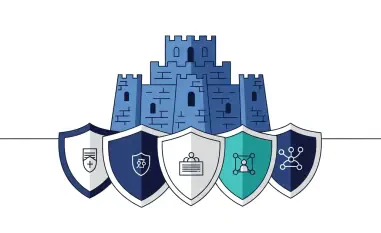The UK is grappling with an Iranian cyber threat that casts a shadow over its vital economic sectors. Amid ongoing geopolitical tensions, especially following strategic strikes on Iranian nuclear facilities, the potential cyber risks from Iran create a complex challenge for sectors like petrochemicals, utilities, and finance. This article provides a thorough analysis of the current threats and projects potential impacts, emphasizing critical vulnerabilities while suggesting strategies to bolster infrastructure security and network resilience.
Contextual Overview of Cyber Threats
The modern cyber landscape is incredibly dynamic, with state and non-state actors leveraging digital means to exert strategic influence. For the UK, the increase in Iranian cyber activities signifies an urgent need to monitor such actors, especially within the context of intensified geopolitical confrontations. While the UK’s immediate threat level from Iran may not be at its peak, shifting global alliances underscore the necessity to be vigilant. This analysis is crucial to comprehend emerging threats effectively and to fortify cyber defenses accordingly.
Deciphering Market Dynamics and Future Outlook
The Sophistication Puzzle
When assessing Iranian cyber capabilities, it is essential to consider the so-called “sophistication gap.” Although Iran does not possess the advanced cyber arsenals of nations like China or Russia, it effectively utilizes simpler methods such as basic malware or phishing attacks. These strategies are adept at targeting unpatched systems and exploiting human error. The persistence and adaptability of Iranian actors compel UK businesses to prepare by addressing overlooked vulnerabilities and investing in preventive measures to close existing gaps.
Geopolitical Influences on Cyber Behavior
Iran’s cyber activities are deeply intertwined with geopolitical fluctuations. Recent military confrontations and international sanctions have driven Iran to adopt cyber measures as a form of retaliation. The UK’s alliances make it susceptible to becoming embroiled in these tensions, heightening the importance of proactive preparedness. This geopolitical context necessitates a strategic approach by UK sectors to mitigate risks and foster opportunities for defense collaboration.
Regional Dynamics and Their Spillover
Iranian cyber efforts often aim to consolidate regional dominance, impacting neighboring economies and politics. This regional focus can inadvertently extend to the UK, given the borderless nature of cyber operations. By understanding Iran’s regional strategies, UK organizations can derive invaluable insights, enabling them to anticipate spillover effects and implement robust defenses against potential threats.
Strategies for Long-Term Resilience
Considering the trajectory of Iranian cyber threats, the increasing application of artificial intelligence suggests more complex and innovative attack methods on the horizon. As sanctions influence Iran’s cyber tactics, an uptick in sophisticated phishing schemes and corporate infiltrations may be anticipated. Enhancing technologies for threat detection and fostering global cooperation are vital steps, alongside investing in cybersecurity research and development to stay ahead.
Insights and Strategic Recommendations
Faced with the outlined challenges, UK institutions must adopt a multi-pronged approach to enhance cyber resilience. Building multi-layered cybersecurity frameworks, performing regular vulnerability audits, and ensuring comprehensive employee training are all vital actions. Another crucial aspect is executive coordination with government agencies for access to issues and enacting public attribution strategies with caution, balancing deterrence and diplomatic concerns against potential escalations.
Key Takeaways and Strategic Outlook
In conclusion, while the Iranian cyber threat presents a genuine concern, it also offers a unique opportunity for UK sectors to heighten vigilance and reinforce defenses. Fostering an environment of preparedness becomes crucial, especially as geopolitical tensions could rapidly alter the threat landscape. The pressing need for strategic collaboration underscores the importance of leveraging technology and intelligence to fortify critical infrastructure. Through these proactive measures, the UK effectively positions itself to curtail potential cyber invasions, underscoring the imperative for industry action now rather than reactive strategies later.













